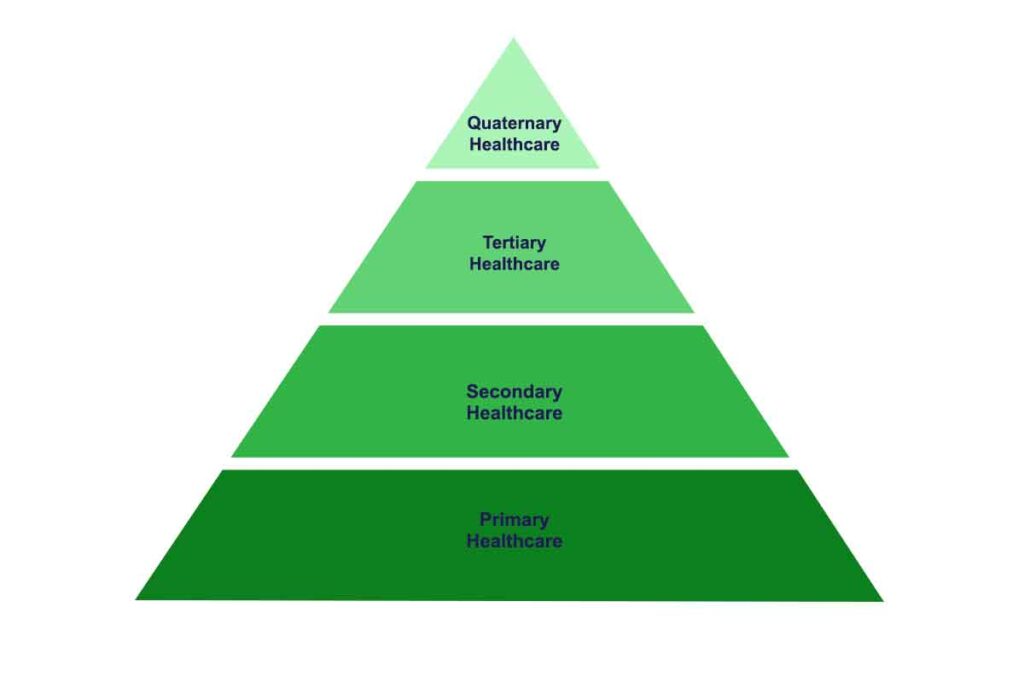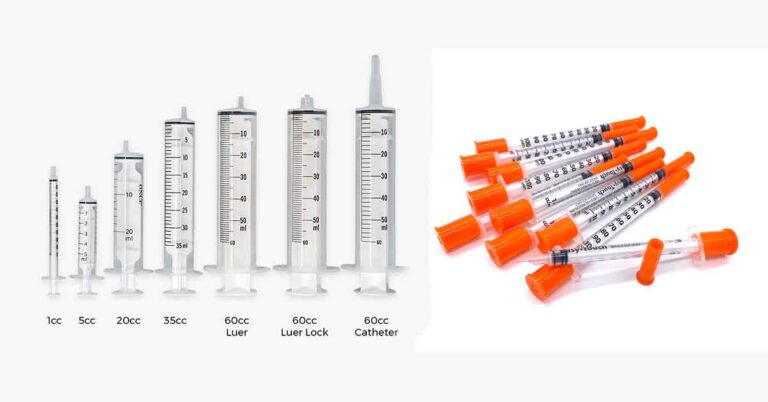In most health system, there are different levels of healthcare system. The structure which appears as pyramid shows the increasing levels of sophistication and specialisation as we move higher. In some countries, there are three tiers of healthcare: primary, secondary and tertiary.
But in some developed countries, another tier called quaternary results in four levels of healthcare. Healthcare systems have the goal of improving the health status of the population.
How Many Levels of Healthcare System
In most healthcare systems, there are three tiers or four tiers or levels of healthcare system depending on the sophistication of the healthcare system in a country.. They are:
- Primary healthcare
- Secondary Health Care
- Tertiary care
- Quaternary care

Primary Healthcare
This is the first level of healthcare system, also called essential healthcare system. They provide services such as health awareness, health promotion, prevention of diseases, treatment, awareness, palliative care. In this people oriented care, the patient can see a primary care doctor (general practitioner or family physician). Other allied healthcare givers such as nurses, pharmacists, physiotherapist, medical laboratory scientist are available.
Primary healthcare is easily accessible at the individual, family, community level, and witness the largest number of patients. In some developing countries in Asia and Africa, a non-medical personnel with a training on health promotion can offer primary healthcare.
The care in the system is continuous, with patients meeting the doctor for regular checkups, and new complaints over many years. Primary healthcare doctors diagnose and treat a wide range of common diseases of different age brackets, race, socio-economic standing, and refer patient to specialist.
They help to mitigate in disease management, reducing hospitalization and emergency health situations. Primary healthcare treats acute and chronic conditions, mental conditions.
Secondary Healthcare
The secondary healthcare is mostly based in the hospitals, clinics, and few times in the community. It is a specialist treatment provided by healthcare givers. The special care they offer includes cardiology or renal specialist clinics, planned operations, rehabilitation (physiotherapy).
They assign a specialist to a patient with severe health conditions such as cancer, severe infections, pneumonia, broken bones. Primary healthcare refers patients to the secondary healthcare centres, while some patients self-refer themselves (in countries with Private Health Care or Self-Pay Systems)
Specialists in the secondary care include obstetricians, cardiologists, dermatologists, paediatricians, paediatricians, and gynaecologists. Other allied healthcare givers are dietitians, respiratory therapists, physical therapists, occupational therapists, speech therapists.
Tertiary Healthcare
This is the third level of healthcare. It is a highly specialised system, providing complex and advanced treatment and procedures for a long period. They have specialists, modern complex and specialised equipments, intensive units, advanced diagnostic centres handled by the consultants.
Primary and secondary healthcare centres refer mostly inpatient based services to tertiary healthcare, and sometimes outpatients.
The tertiary care can be at the national or regional level in different countries. Provision of tertiary care can be from government, or both public and private sectors. People usually travel long distance when accessing tertiary care, causing a delay in diagnosis and treatment, with increased costs.
Examples of tertiary care are transplant services, specialist cancer management, advanced neonatology services, cardiac surgery, specialist cancer management, neurosurgery, complex medical and surgical procedures, severe burns management.
Quaternary Healthcare
Quaternary care (fourth level) is an advanced level of medicine, and the summit of levels of healthcare system. They are highly specialised and not easily accessible. They offer the care in a few national and international centres. Examples of quaternary care are uncommon diagnostic, surgical procedure, experimental drugs.
They cater for a few patients with rare conditions from around the world. In the quaternary care, the uncommon conditions may cause longer hospital stays and morbidity.
The difference between tertiary and quaternary care is that quaternary care can handle any form of procedure, while tertiary care may not offer a sub-specialist with such training.
Reference: Physiopedia






